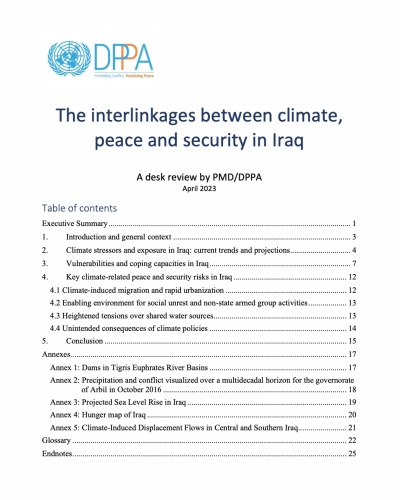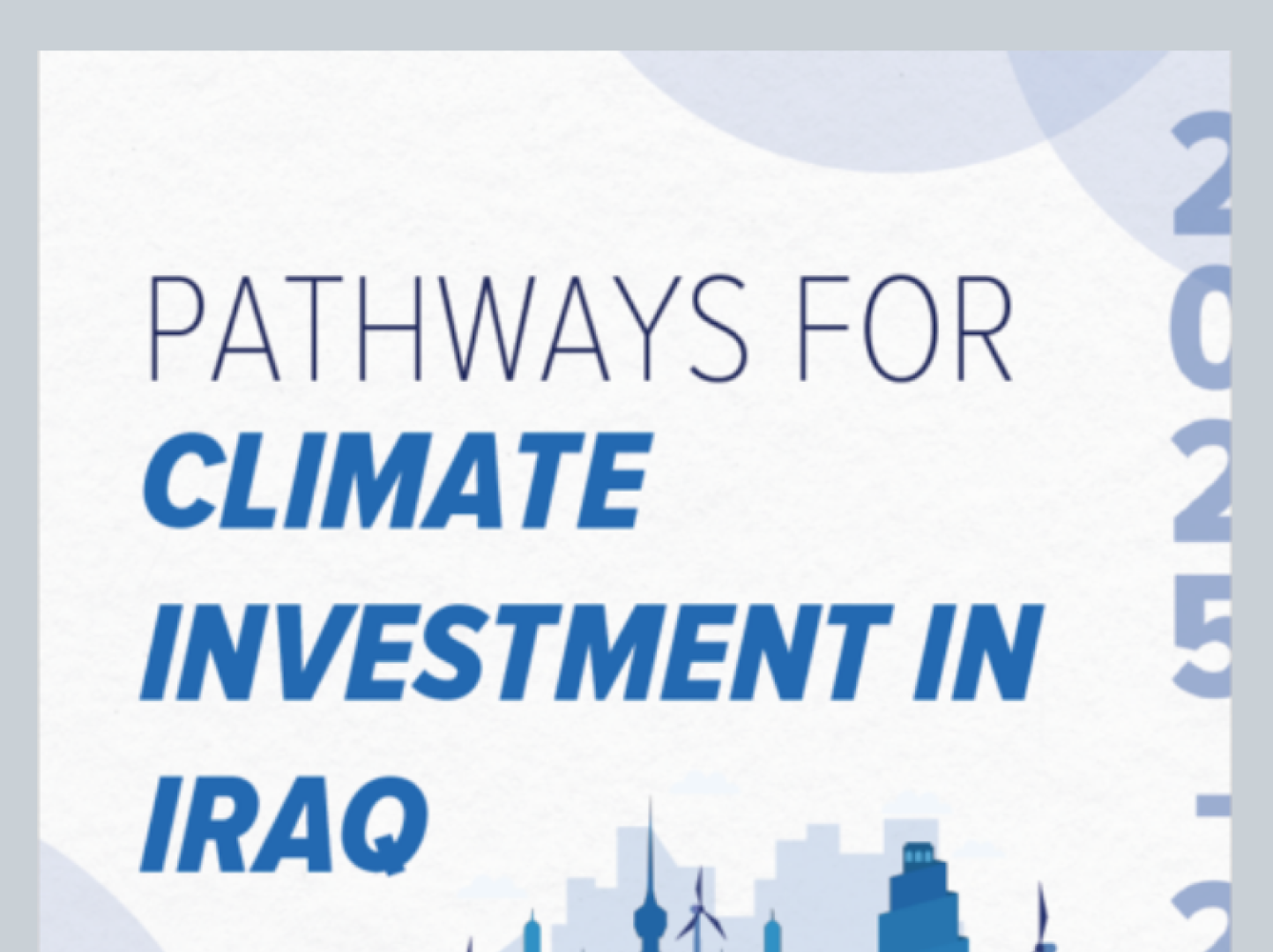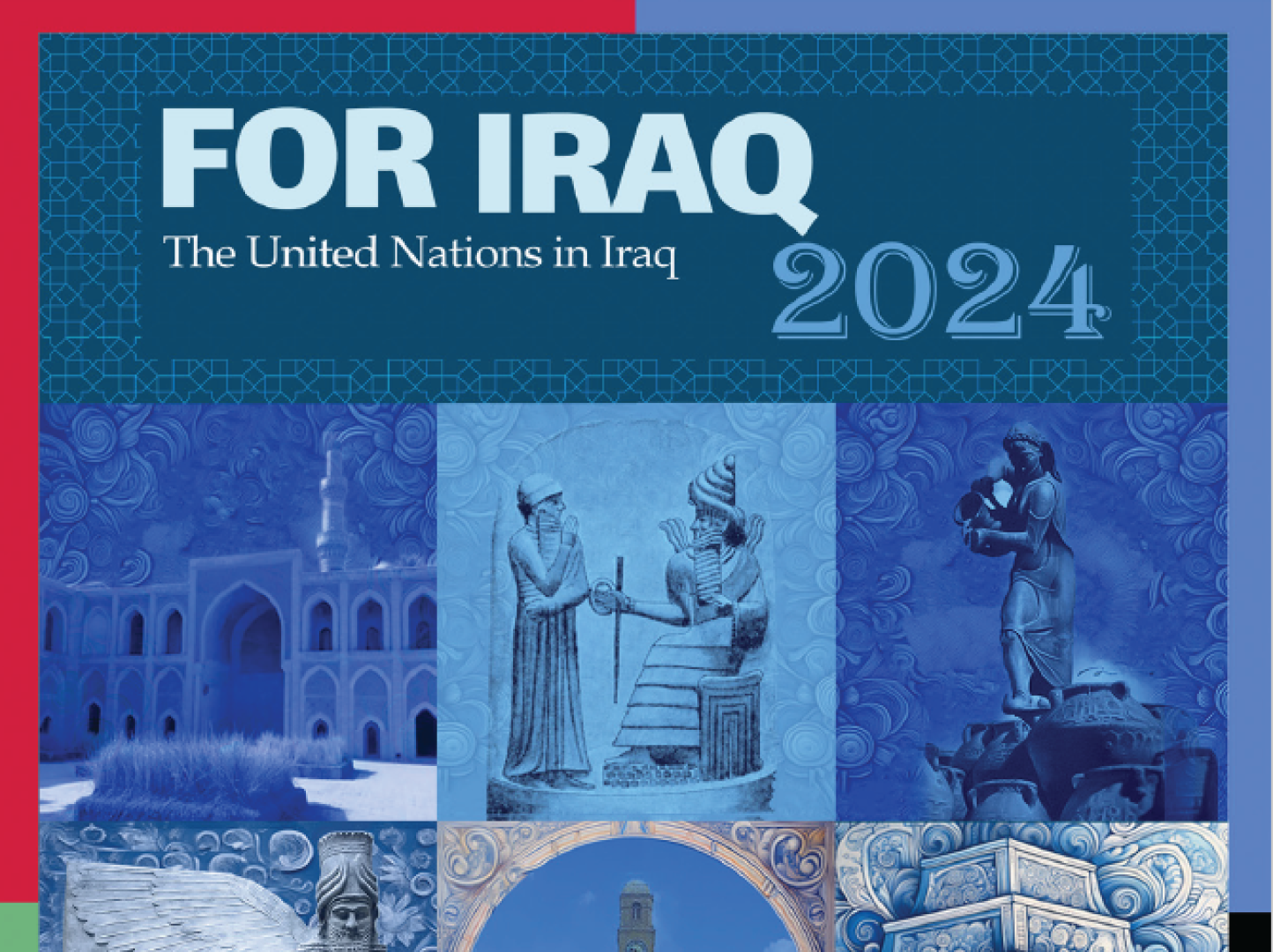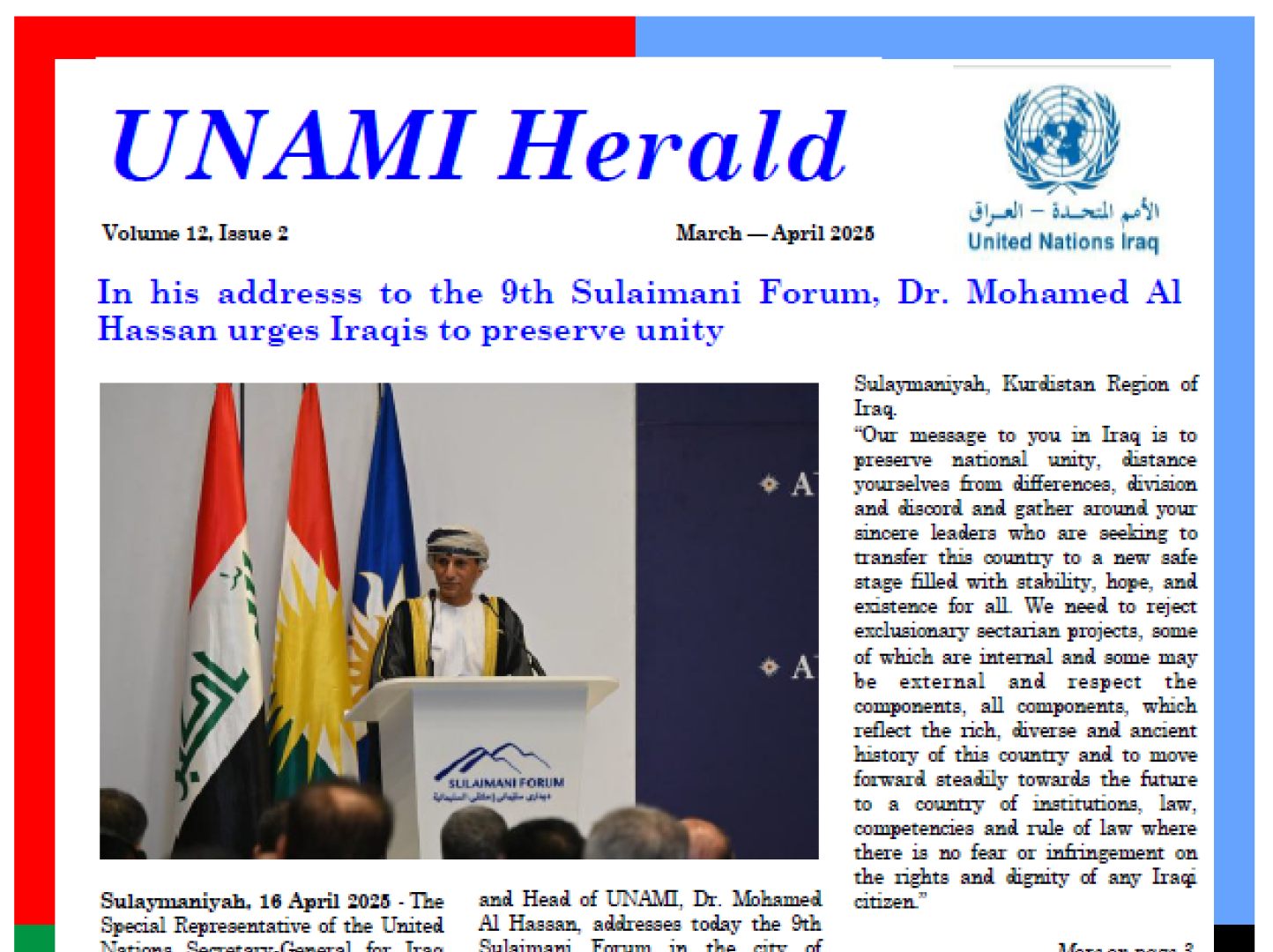The interlinkages between climate, peace and security in Iraq

Executive Summary
Iraq is on the frontline of multiple intersecting crises, such as persistent governance challenges, demographic pressures, and environmental degradation. The rapidly worsening impact of climate change can exacerbate political uncertainty and difficult economic prospects, escalate domestic tensions, and ultimately contribute to instability in the country and beyond its borders. Iraq’s most vulnerable groups – including women, refugees, internally displaced persons (IDPs), young people, and other marginalized groups – carry the brunt of these intersecting risks as a result of their limited ability to adapt and respond these impacts.
The United Nations Security Council has recognized the adverse effects of climate change on the stability of Iraq and mandated the United Nations Assistance Mission for Iraq (UNAMI) to provide advice, support and assistance to the Government and people of Iraq, including on challenges posed by climate change. The present desk review prepared by the Policy and Mediation Division (PMD) in the UN Department of Political and Peacebuilding Affairs (DPPA), in partnership with UNAMI and the Climate Security Mechanism (CSM), aims to support the Mission’s work on climate, peace, and security. It seeks to build a better understanding of the different linkages between climate change and insecurity in Iraq and presents possible entry points for integrated UN action to anticipate, mitigate and manage climate-related security risks in an inclusive manner.





